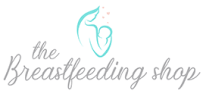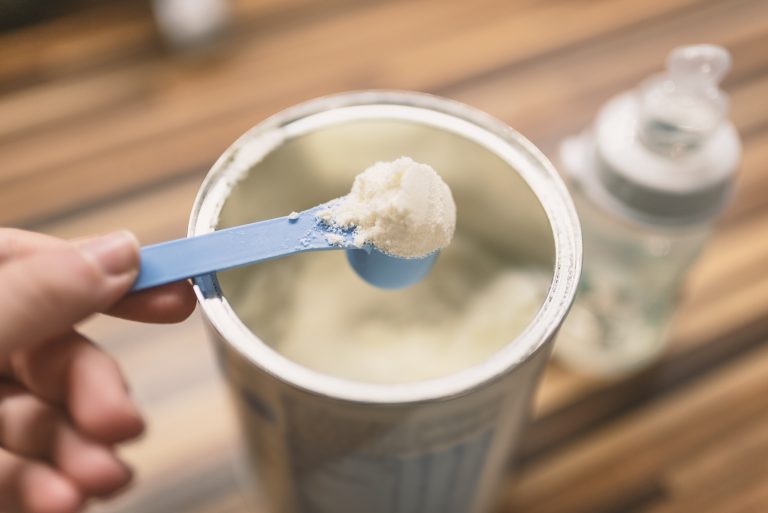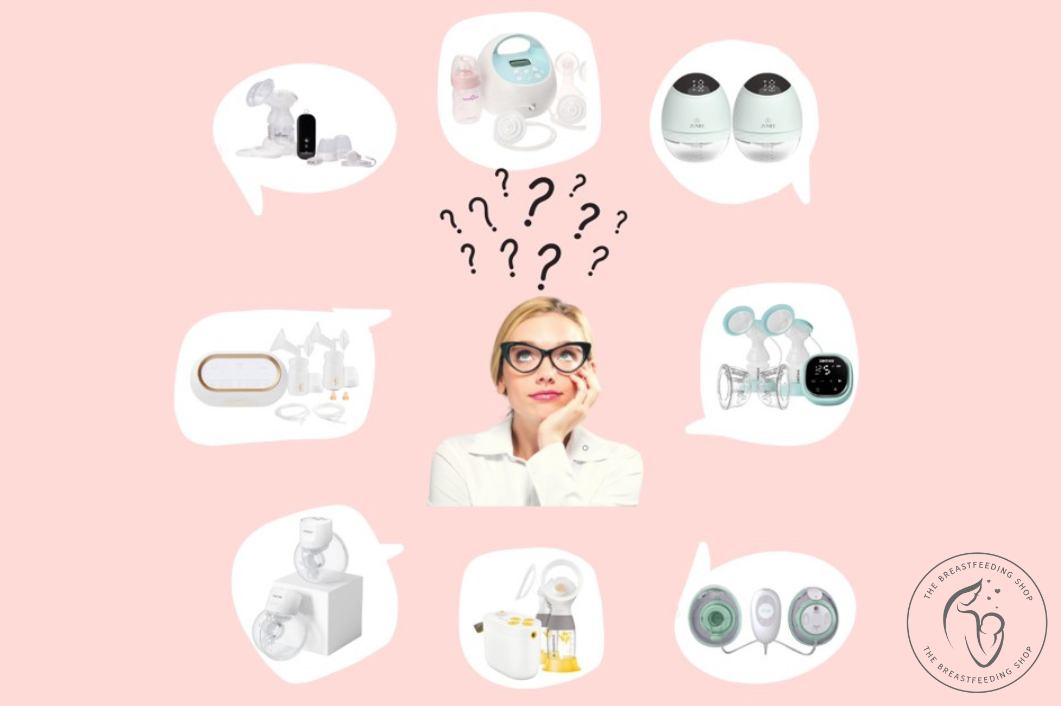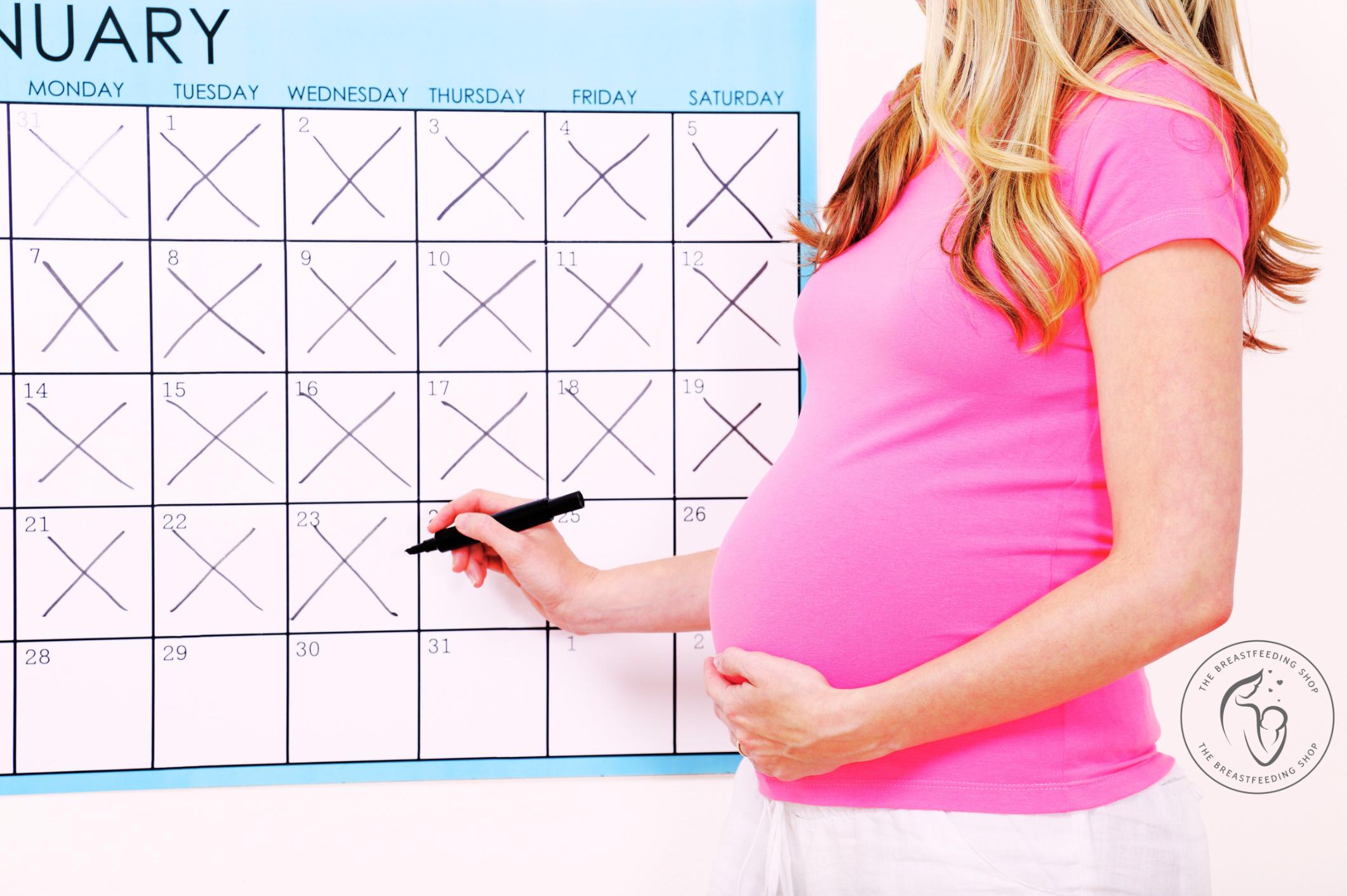The Current Baby Formula Shortage
While many people have been panic buying hand sanitizer, disinfectants, toilet paper, masks, thermometers, hair clippers, and oat milk during the Coronavirus pandemic — other people bought out baby formula. While a baby formula shortage has sprung up recently in brick-and-mortar stores, some online retailers have started to jack up their prices.
As the U.S. braced for shortages, it was recommended that caregivers and parents stock up on enough formula to last between 10 and 14 days. Some families took way more than that, straining supplies at a very tough time for everyone. Low-income parents or families who recently lost jobs will be most affected by any shortages. Even food banks and nonprofits are running out of formula.
Some people are blaming the baby formula companies, saying they should have picked up production rates at the beginning of the Coronavirus scare late last year into early 2020. The baby formula industry analyzes buying patterns from previous years to predict how much formula will be needed. When a store puts in an order for more formula, it can take between 12 to 16 weeks to fulfill the order. It doesn’t help that freight transportation capacity was stretched thin at the beginning of the COVID-19 outbreak.
COVID and the Baby Formula Shortage
It is believed that store shelves could be restocked with formula within the next couple of weeks, but don’t expect them to be fully stocked for another few months. While people have found creative ways to get around toilet paper and face mask shortages, there isn’t a substitute for formula that you can buy. If you’re out of baby formula, and your child is too young to start eating mashed food—then you can’t feed your child. This is a very scary and horrible situation to be in, and formula makers are working hard to prevent the situation from lingering. At this point, there is only so much they can do to keep your local shelves stocked up, though. As long as parents are nervous about a formula shortage, they could keep stockpiling formula. Companies are asking parents to limit their purchases to a 7 to 10-day supply.
Some parents are watering down the formula they have, buying formula off of eBay, substituting cow’s milk for formula, or trying to make their own formula. Under any circumstances, you should not try any of these tactics that could be harmful to your baby. Infant formula is made according to very specific government-regulated standards. To avoid all of this, there is one thing expected mothers can do to prevent a need for breast milk—give breastfeeding a try. Once you decide to move away from breastfeeding, relactation can be difficult.
The Benefits of Breastfeeding & Pumping
While there are pros and cons to formula feeding and breastfeeding, now could be a good time to consider pumping, with the infant formula shortage. Not only does nursing your baby provided unparalleled nourishment, but it also bonds the newborn with the mother. Breastfed babies have a reduced risk of obesity, type 2 diabetes, asthma, ear and respiratory infections, and SIDS. Breast milk is also a convenient and free option.
Additionally, The Breastfeeding Shop may be able to work with your insurance to acquire a free breast pump for you. The cost of raising a child is very expensive, and future paychecks may not be guaranteed for you or your spouse during these uncertain times. We can also help with reimbursement for breast pumps, and we carry pumping accessories as well as compression garments. We want new moms to have everything they need to nourish their children and recover from childbirth.
Working and Breast Pumping
If you have a busy schedule that involves work or looking after multiple children, breast pumping offers the scheduling abilities that you need. You can pump when it works for you and safely store your milk until your baby is ready for it. You could even hand off feeding duties to your spouse or another caregiver. Direct breastfeeding forces the mother to be present for every feeding, while pumping allows the mother to get some rest and recover from childbirth. Some babies have trouble with latching, which can be painful for new moms. Also, you’re able to address any shortage of formula or breast milk directly. With a top breast pump, you can stash breast milk in your freezer for future use.
UNICEF says that, in an emergency situation, breastfeeding is the most reliable and safe method of baby feeding. Furthermore, the virus could be spread through formula manufacturing factories and/or delivery warehouses. If any of these factories or warehouses are forced to shut down because of the COVID-19 pandemic, that would be horrible for families.
Pumping through the Coronavirus
The Centers for Disease Control and Prevention (CDC), World Health Organization (WHO), and the Academy of Breastfeeding Medicine (ABM) all recommend continuing to provide your child with breast milk, even if you start feeling the symptoms of COVID-19 or are infected with it. Thus far, there is no evidence that the Coronavirus disease can be transmitted through breast milk. The ABM says that if a mother has a COVID-19 diagnosis or its symptoms, she should isolate herself from others and either pump her milk or continue breastfeeding while following precautions. Make sure you wash your hands before touching your child or pump, and (if possible) wear a mask when interacting with your infant while following respiratory hygiene. You should also follow the CDC’s essentials for keeping the breast pump clean.
There is a lot to consider in these tough times. If you have any questions or concerns about feeding your child, get in touch with your doctor before making any decisions. The Breastfeeding Shop is also here to provide information and guidance. Contact us to find the best breast pump for you and your child that you can get for free through your insurance. We carry a wide variety of pumps, and we even offer a helpful breast pump comparison chart.




